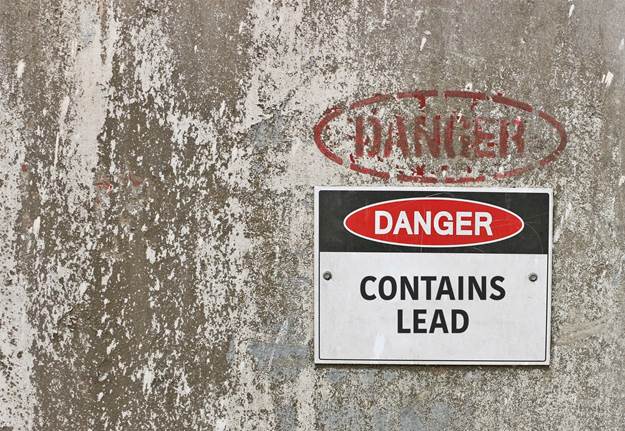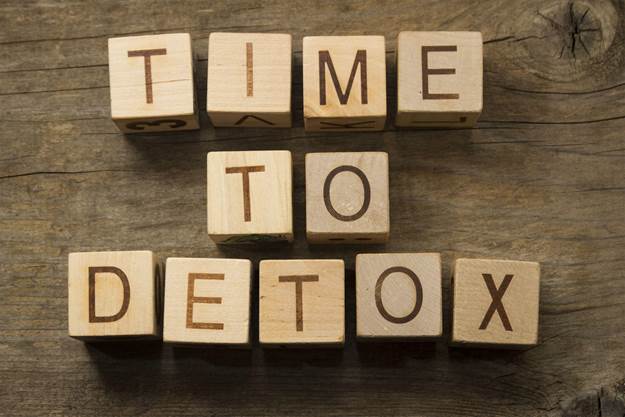If you’ve been feeling sleepy, sluggish, and sickly, heavy metals may be to blame. This doesn’t mean you swallowed a penny or are becoming a superhero. Heavy metals naturally occur in our bodies, but sometimes we can absorb too much, causing heavy metal poisoning.
For identifying and combating heavy metal toxicity, consider this your complete guide, from symptoms to sources to solutions!
What Is Heavy Metal Poisoning
Heavy metals are natural elements you find on earth. These heavy metals are used in many industries, such as agriculture, medicine, and industry.
Heavy metal poisoning is when you absorb too many heavy metals into your body. Our bodies naturally have and need some of these metals, but too many can be detrimental to your health.
Heavy metal toxicity symptoms can be mild to severe, and many people have trouble pinpointing the cause of their discomfort, fatigue, or pain.
Symptoms
There are a few signs that may indicate you have heavy metal toxicity in your body. Heavy metal poisoning symptoms can be difficult to identify because they can also be symptoms of many other conditions or health issues.
But the culmination of all the heavy metal toxicity symptoms explained below likely means it’s time for a heavy metal detox.
Digestive Problems
One of the most common heavy metal poisoning symptoms is digestive trouble. This can mean chronic diarrhea, constant nausea, severe abdominal pain like cramps, or vomiting after eating or in the morning.
If you experience these problems frequently and can’t pinpoint the cause, it may be due to heavy metal toxicity.
General Fatigue
Many people go through life tired and unfocused, assuming it’s just part of being a human. But this isn’t the case. If you consistently feel weak, tired, and foggy, it could be due to high levels of harmful metals in your body.
You may also experience shortness of breath from simply walking up a flight of stairs or walking a longer distance than usual.
This fatigue could come on all at once, exhausting you one day when the day before you were energized and awake. Or it can be a slow decline into constant sleepiness and weakness.
Odd Sensations
If you experience odd sensations in your body, such as random chills, hot flashes, or tingling sensations in your hands and feet, it could be a sign of heavy metal poisoning.
These strange bold sensations, along with digestive issues and an overall feeling of fatigue, can be a clear sign of heavy metal toxicity that should be addressed.
Causes
The cause of heavy metal poisoning is an excess of harmful toxic metals in your body. But how do we absorb these metals? There are numerous ways harmful metals can wind up in our bodies. Some are unavoidable, while others can be prevented with caution.
Pollution
Air and water pollution is one of the leading causes of heavy metal toxicity in the body. And unfortunately, it’s rather unavoidable.
Common pollutants humans are exposed to include particulate matter, ozone, nitrogen dioxide, carbon monoxide, sulfur dioxide, arsenic, cadmium, chromium, copper, nickel, lead, and mercury. These particles can be in our drinking water or the air we breathe, making them unavoidable.
People that live in large cities, in particular, have chronic exposure to these types of pollutants. While some are good for our body in balanced amounts, too much can cause heavy metal poisoning.
Since you can’t avoid these pollutants, the only way to restore your body to the proper balance of metals is to complete thorough heavy metal detoxification.
Foods
Sadly, some of your favorite foods might have high levels of heavy metals. The most common culprit is fish. All fish, including shellfish, have some level of methyl mercury in them.
Fish like tuna, king mackerel, marlin, orange roughy, and swordfish are particularly high in mercury, so don’t eat too much of these to avoid mercury poisoning.
Other foods that contain mercury or other heavy metals include brown rice, leafy greens, and grains. Eating too many of these can result in heavy metal toxicity in your body. Another common consumable source of heavy metals is unfiltered water, due to water pollutants.
Medicines
Medicines that contain heavy metals are typically medications for chronic issues. Medications for conditions like diabetes, rheumatoid arthritis, asthma, smoking withdrawal, high cholesterol, and mineral deficiencies, often contain heavy metals that can sicken you.
Some antihistamines also contain heavy metals. But unfortunately, people with the chronic conditions listed above cannot cease taking their sometimes life-saving medications. So the only way to balance out the metals in their body is to do a heavy metal detox.
Occupational Exposure
Heavy metal poisoning due to occupational exposure typically only occurs in people with particular jobs.
Professions like construction workers, artists, battery manufacturers, miners, mechanics, and agricultural workers tend to have more heavy metal exposure than the average person. This can cause them to absorb higher levels of lead and other heavy metals than someone who does not work in these professions.
Ingestion of Lead-based Paints
Many states have banned lead-based paints and paint manufacturers have stopped producing them for household use. But they’re still around, and if you’re near them, inhaling them can result in lead poisoning or heavy metal toxicity.
Whenever you are near or handle lead-based paints, you should wear a mask to protect yourself from lead exposure and be careful not to get it on your hands or skin.
The Helpful Metals
Your body naturally contains and needs certain metals to balance fluids in the body, create new blood cells, and strengthen our bones and teeth.
If you don’t consume enough of these ‘good’ metals, you may feel sluggish, weak, or sick, like how you feel when you absorb too many harmful metals.
The following are helpful metals that keep your body healthy and strong:
- Calcium
- Chromium
- Copper
- Iron
- Magnesium
- Manganese
- Molybdenum
- Potassium
- Sodium
- Zinc
The Harmful Metals
Like there are good metals, there are bad metals that can enter your body. These metals are the ones that most commonly cause heavy metal poisoning in your body, and should be avoided as much as possible.
It’s often impossible to avoid these entirely, but trace amounts in your body won’t necessarily cause symptoms of heavy metal poisoning. It’s when the amounts build up or you absorb a large amount all at once.
These are the harmful metals that most commonly cause heavy metal poisoning:
Types
There are two discernible types of heavy metal poisoning. They result in the same symptoms but usually have different causes.
Acute Metal Poisoning
Acute heavy metal poisoning is when your body absorbs a large amount of toxic metal all at once. Acute metal poisoning typically occurs in industrial environments, around lead paint, or when someone is exposed to high levels of pollution.
Unless you were to eat a ton of fish at once, food usually is not the cause of acute heavy metal poisoning. Neither are medications. With acute metal poisoning, your symptoms will likely come on quickly and severely.
Chronic Metal Poisoning
Chronic metal poisoning is when toxic heavy metal builds up in your body slowly over time. This type of poisoning usually happens in people that consume a lot of fish, use a medication that contains heavy metals, work in a mildly toxic work environment, or are exposed to mild amounts of pollutants daily.
With chronic heavy metal poisoning, the symptoms will slowly arise and worsen over time until you rebalance the metals and fluids in your body.
How to Assess Heavy Metal Levels
If you suspect you may be suffering from heavy metal toxicity, there are a few ways to measure the heavy metal levels in your body to better understand what the issue is.
You can take a heavy metals panel test, which will test for multiple kinds of metals. High levels of any or all of the metals being tested indicate you have heavy metal poisoning.
If the test results say you have more than minuscule amounts of the harmful metals, this is metal poisoning, but if you have insanely high levels of the helpful metals, like zinc or copper, this also means you have metal poisoning. You should only have moderate to low amounts of heavy metals in your body at all times.
Most heavy metal panel tests come with a chart to help you understand and interpret your results. These panel tests can analyze different bodily samples. Most test blood or urine. But you can also test hair and fingernails to assess heavy metal levels.
Heavy Metal Detox
The best way to deal with heavy metal toxicity symptoms is to do a heavy metal detox! This type of detox will remove the high amounts of metal in your body and help you feel energized and healthy again.
When
Knowing when to do a heavy metal detox is important. Even if you did not take a heavy metals penal test, it’s still wise to do a heavy metal detox ritual, as many people suffering from heavy metal poisoning don’t even realize it.
If you’ve been feeling tired or nauseous often, or you were recently exposed to high levels of heavy metals, you should do a detox to be on the safe side.
If you recently discovered your bedroom has lead paint or you think you’ve been eating a lot of fish and seafood lately, this is a good time to do a heavy metal detox to rejuvenate your body.
How
There are home remedies you can do to perform a heavy metal detox. Most of them are a combination of cilantro and cholera. But homemade concoctions are not nearly as effective as heavy metal detox products you can purchase, specifically engineered to cleanse your body.
The best heavy metal detox supplements feature organic and powerful ingredients, like cilantro leaf, parsley leaf, alfalfa leaves, stinging nettle leaves, Agaricus mushrooms, cleavers, Chaga mushrooms, and micro-activated carbon.
Dop a small amount of the detox supplement onto your tongue once or twice daily. Depending on how severe your heavy metal toxicity is, it can take between one week and eight weeks for the detox to completely cleanse your body.
Final Note
While mild cases of heavy metal poisoning can go unnoticed and untreated, it can be a severely debilitating condition. If left untreated, it will often worsen, causing you to feel sicker every day. You’ll be surprised how incredible you feel once you begin a proper heavy metal detox!
FAQs
For more information on heavy metals, refer to the commonly asked consumer questions below.
Will heavy metals go away on their own?
In very mild cases, heavy metals can dissipate from the body on their own. This can only happen when the heavy metal poisoning is extremely mild, and the cause of absorption is determined and then avoided.
Avoiding the source of heavy metals can mean taking time off work, moving to a new location away from heavy pollutants, or changing your diet to include fewer foods containing heavy metals, like fish.
What’s the worst heavy metal to have in your body?
Arsenic is the worst heavy metal to have in your body. Due to today’s pollution and other environmental factors, most people have small traces of arsenic in their bodies.
The second worst is lead, which is also poisonous and does not naturally occur in the human body. It’s also one of the easiest heavy metals to come in contact with and absorb because it’s used in many manufactured products and facilities.
How can you increase helpful metals in your diet?
A well-balanced diet will provide you with all the healthy heavy metals you need. A diet rich in fruits, vegetables, whole grains, beans, dairy or calcium-enriched soy products, and lean protein all has healthy metals to keep your body balanced.



